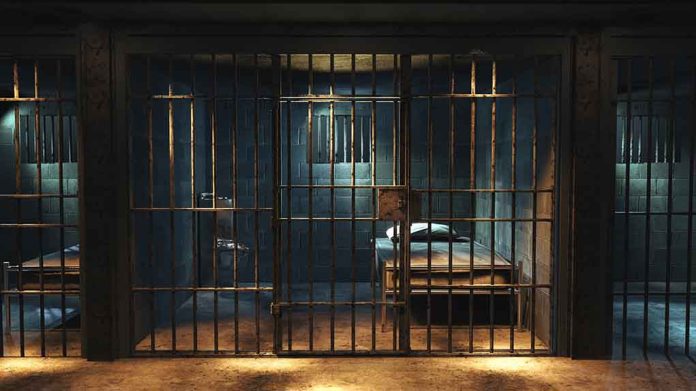
Supreme Court faces a pivotal decision as Louisiana prison guards forcibly cut a Rastafarian’s dreadlocks despite his court order protecting his religious rights.
Key Takeaways
- The Supreme Court will hear Damon Landor’s case challenging whether inmates can sue prison officials for damages under the Religious Land Use and Institutionalized Persons Act (RLUIPA).
- Landor, a Rastafarian who took a Nazarite Vow to grow his hair, had his dreadlocks forcibly shaved despite having a court order protecting his religious practice.
- The Trump administration supports Landor’s right to sue for damages, while Louisiana officials warn such liability could worsen prison staffing shortages.
- The decision could impact religious freedom protections for over one million incarcerated Americans.
Religious Freedom Violated Despite Court Protection
During the final three weeks of his five-month sentence at Raymond Laborde Correctional Center in Louisiana, Damon Landor experienced what his attorneys describe as a flagrant violation of his religious rights. As a practicing Rastafarian, Landor had taken what he described as “the Nazarite Vow to let the locks of the hair of his head grow.” Despite carrying a court order specifically protecting his religious practice, prison guards forcibly cut his dreadlocks. According to court documents, a prison guard discarded Landor’s court ruling before proceeding with the forced haircut, a direct contradiction of his protected religious expression.
While the 5th U.S. Circuit Court of Appeals acknowledged the mistreatment, they ruled that current law doesn’t allow Landor to seek damages against the prison officials responsible. This legal gap has prompted the Supreme Court to take up the case, with arguments scheduled for this fall and a decision expected by summer 2025. The case, officially titled Landor v. Louisiana Department of Corrections (23-1197), could fundamentally reshape how religious freedom is protected within America’s correctional system.
Trump Administration Backs Religious Liberty
In a significant development, the Trump administration has thrown its support behind Landor’s appeal. Solicitor General D. John Sauer has argued that denying inmates the ability to seek damages undermines the entire purpose of RLUIPA, a law enacted in 2000 to protect religious exercise for institutionalized persons. The law currently allows substantial burdens on religious practices only if they serve a compelling governmental interest and are implemented through the least restrictive means possible.
“The denial of a damages remedy to vindicate RLUIPA’s substantive protections would undermine that important purpose. And the circumstances precluding relief here are not unique,” stated Solicitor General D. John Sauer.
Landor’s attorneys have emphasized the wide-reaching implications of this case for incarcerated Americans nationwide. They point to a 2021 Supreme Court decision that allowed Muslim men to sue FBI agents over the no-fly list as a precedent that could support their client’s right to seek damages for religious rights violations. The administration’s position signals strong federal support for reinforcing religious liberty protections, even within the complex environment of correctional facilities.
Louisiana’s Opposition and Broader Implications
Louisiana officials have vigorously opposed Landor’s appeal, arguing that RLUIPA was never intended to provide a pathway for inmates to sue prison staff for damages. The state’s attorney general’s office has raised concerns about the potential consequences of a ruling in Landor’s favor, suggesting it could exacerbate existing staffing shortages in correctional facilities across the country. In their court filings, the state claims to have already amended its prison grooming policies to prevent similar incidents.
“Serious consequences would flow from Petitioner’s view, if adopted. For example, the current staffing shortage in state prisons would only grow worse if current staff and potential job applicants learned that they would be personally liable for money damages,” argued the state in its filing.
Landor’s legal team counters that without meaningful remedies, the protections offered by RLUIPA become hollow promises. They argue that the 5th Circuit’s decision to merely condemn the treatment while dismissing the claims left their client with no actual relief. The Supreme Court’s decision could also affect other pending religious freedom cases, including that of Sanjay Tripathy, a Hindu whose case alleging similar violations by New York officials is currently on hold awaiting the outcome of Landor’s appeal.
“Without a damages remedy, RLUIPA’s promise was empty. The panel could respond only by writing in italics that it ’emphatically condemned [ed]’ Landor’s mistreatment, as it dismissed his claims and left Landor with no relief whatsoever. That is a telltale sign that this Court’s intervention is needed,” stated lawyers for Landor.
For the more than one million Americans currently incarcerated in state prisons and local jails, the Supreme Court’s eventual ruling will determine whether they have meaningful recourse when their religious liberties are violated. The case represents a critical test of how America balances institutional security concerns with the constitutional and statutory protections for religious expression, even for those behind bars.




